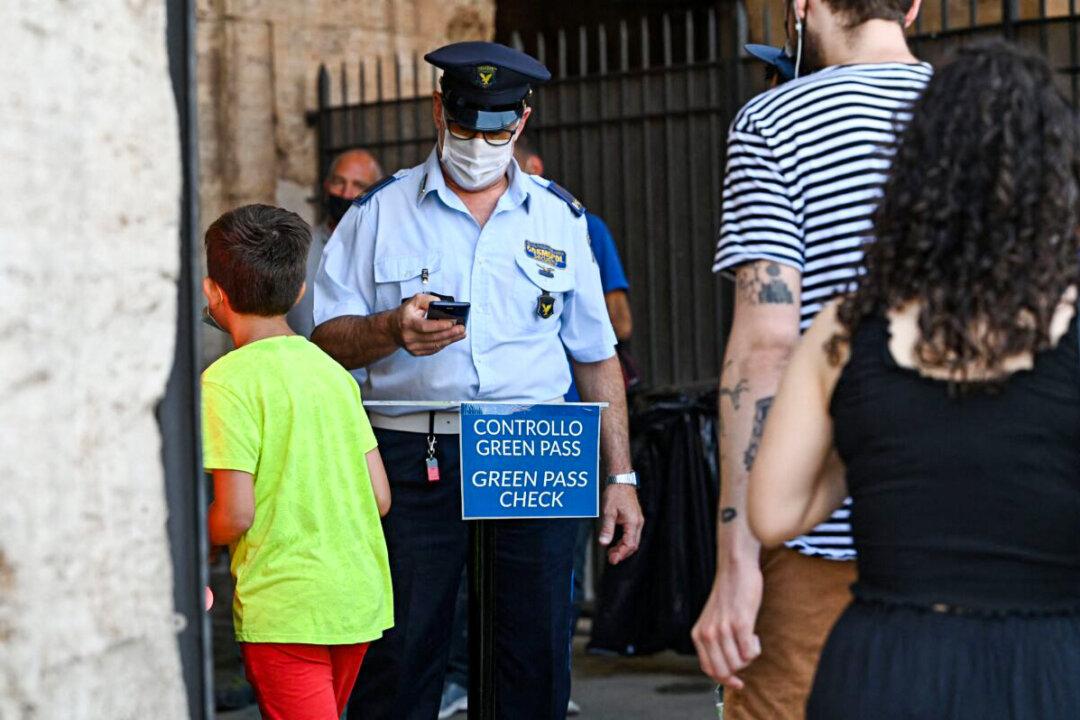The Italian government ruled that citizens who are unwilling to get a COVID-19 shot will be blocked from entering many indoor public settings as of Dec. 6, just ahead of the holiday season.
Under the new measure, unvaccinated Italians will be unable to enter restaurants, clubs, theaters, sporting events, and museums. The government announced the rules last month, saying it is needed to encourage more people to get the shot. The restrictions are expected to remain in place until Jan. 15.





